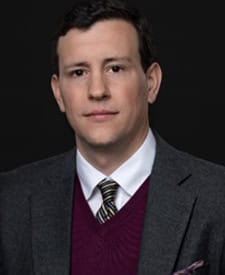
Nate Fischer
2020 Lincoln Fellow
What is your current position?
Founder of New Founding, a media and investment company that is building a digital commonwealth—a network designed and governed for the good of its members.
What inspired you to choose this career path?
Our country is headed in a grim direction, and there is a pressing need for leaders who recognize how to push back not just in the traditional political domain, but in the commercial, cultural, and technological domains. Digital transformation offers one of the greatest opportunities for us to disrupt entrenched institutions dominated by hostile ideologies, but the right has been mostly absent from this space. We have a chance to change this, as so many on our side are profoundly dissatisfied with existing platforms and institutions, and eager to embrace a new alternative that will deliberately advance their interests and offer a better vision of life.
What are you currently working on?
We have a number of media projects. These include Firebrand (americanfirebrand.com), a digital media super PAC, Align (joinalign.us), a newsletter (and now podcast) highlighting politically aligned businesses, and RETURN (return.life), focused on how to live well in the digital age, with several others in the works.
Principal Investments (principalinv.com) is a private investment firm focused on investment in the American way of life. We back companies that align with our broader vision, and the direction American business must move.
Finally, American Forum, the digital commonwealth, is a new kind of tech platform designed to organize Americans online and advance their good—a true alternative to platforms that are both extractive and ideologically hostile.
How did you hear about the Claremont Institute?
I’d known about it for years, but became familiar when I met Matt Peterson in early 2019, as I was shifting my focus more directly into politics. Through Matt, I got to know others on the team and recognized the alignment between their view of the country and the one motivating my new focus.
There are all sorts of educational programs out there for current and rising conservative professionals. What do you think makes the Claremont Institute’s Fellowships unique?
Claremont’s programs combine a truly rigorous education—with significant reading of original texts as well as analysis—with a recognition that the purpose today must be practical action. Many programs still focus on discussing and debating ideas, which has its place, but those who recognize the need for serious action—or statesmanship—and want to play a part in this will appreciate the way discussions at a Claremont fellowship continually turns to contemporary implications, strategies, and tactics. Likewise, this focus means you’ll be surrounded by other fellows who are similarly motivated and engaged in different facets of the movement.
What qualities do you believe will make outstanding statesmen/women in this century?
Statesmanship always requires prudence and an understanding of power. But our environment particularly demands a level of moral leadership that can bring together people whose moral foundations have been systematically undermined for decades by a rolling cultural revolution. This means not only a personal morality that sets an example, but an ability to articulate principles that might have once been taken for granted, and an understanding of how to use law and other tools of power to help reinstate virtue in some important areas—most notably around the family—where it has been lost.
We are also experiencing a digital transformation that I believe will profoundly reshape society and even the nature of political bodies. A successful statesman today will have a vision for where this transformation leads, and how to use these tools to help achieve his objectives. He need not be a technologist (and the rise of tech oligarchs totally unsuited for such statesmanship into roles of de facto governmental power is one of the great threats we face), but he must understand how to leverage technology far better than any prominent political leaders we have yet seen in American.
What books are you currently reading?
Human, Forever by James Poulos. James understands the implications of digital transformation in a way few have yet grasped, and his vision of what such transformation portends—and what a human society might look like in the face of algorithmic mediation of so much of our lives—is required reading for anyone who wants to understand the future we face.
I am also reading Washington by Ron Chernow. I enjoy biographies, and George Washington was a towering figure in a period of great transition, yet one I realized I knew far too little about. As we ask questions about the nature of our country and political union, the founding era and Washington’s example offer important examples for today.

